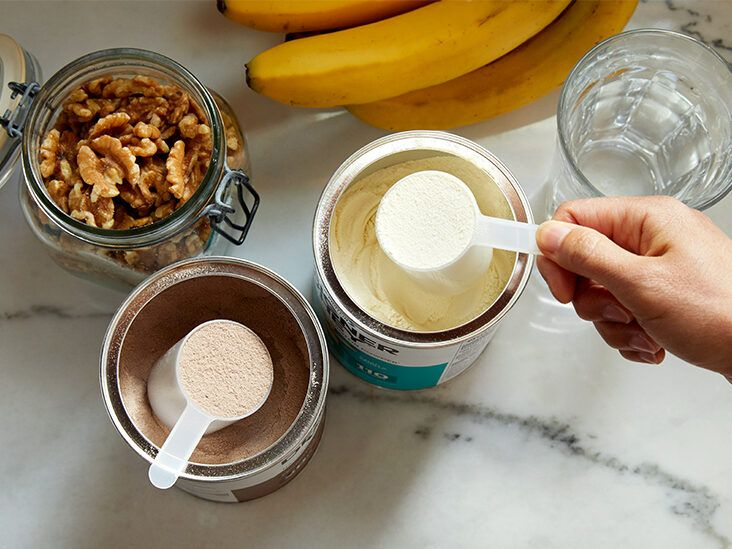
Gaining weight can be a significant challenge for many people, especially those with high metabolisms, specific health concerns, or muscle-building goals. Rather than just increasing calorie intake with processed or sugary foods, experts recommend focusing on nutrient-dense, healthful foods that provide the right balance of proteins, fats, and carbohydrates, along with essential vitamins and minerals. Achieving healthy weight gain requires a consistent calorie surplus, meaning you need to eat more calories than your body burns each day. For best results, consuming frequent, smaller meals rich in calories and nutrients is advised, ensuring that the weight gained supports both overall wellness and, if desired, muscle growth.
Including homemade protein smoothies in your daily diet is an effective way to intake more calories and nourishment without resorting to processed drinks. Smoothies offer versatility and control over ingredients, so you can tailor them to your nutritional needs and taste preferences. Using dairy or soy milk as a base boosts calories and nutrients, while options like chocolate banana nut, vanilla berry, or super green smoothies offer variety and plenty of protein. Each of these options typically provides between 400 and 600 calories, making them a convenient, portable solution for increased calorie consumption.
Dairy milk remains a classic, reliable option for weight gain and muscle development. Both casein and whey proteins in milk support muscle growth, making it an excellent choice when combined with weightlifting or resistance training. Each cup of whole milk delivers a balanced profile of protein, carbohydrates, and fats along with calcium and other essential nutrients. Drinking milk with snacks, meals, or before and after workouts can be especially useful for those trying to add lean mass or recover after exercise.
Rice stands out as a convenient, calorie-dense carbohydrate that can be easily incorporated into meals for extra energy. Just one cup of cooked white rice contains over 200 calories and is low in fat. Its mild flavor and adaptability allow rice to pair well with proteins and healthy fats, making it ideal for batch cooking or creative meal combos. Options like butter and cheese, eggs, or curry sauces can transform simple rice into satisfying meals with varying protein and calorie contents.
Nuts and nut butters are valuable additions to a weight gain eating plan, thanks to their high calorie density, healthy fats, and protein content. A handful of almonds, for example, can contain over 170 calories and six grams of protein, making them a compact and portable snack. Nut butters like peanut or almond spread enhance the calorie and nutrient value of smoothies, yogurts, crackers, and more. Choosing products with minimal added sugars and oils is recommended for optimal health benefits.
Red meats, such as beef or pork, are among the most effective foods for building muscle and gaining weight due to their rich protein and fat content. Steaks, for instance, provide not only protein but also leucine, an essential amino acid for muscle protein synthesis, and creatine, which supports muscle performance. Fattier cuts supply more calories, which can be helpful for those needing to maintain or increase daily intake. However, moderation is key, as excessive consumption of red meat may be linked with certain health risks, emphasizing the importance of a varied diet.
Potatoes and other complex carbohydrates, including oats, quinoa, corn, and legumes, supply steady energy and essential nutrients while contributing to calorie goals. These foods also serve to replenish muscle glycogen, which is critical for sports and physical activity. Adding ingredients like olive oil, cheese, or hummus can further boost the calorie count and palatability of complex carbohydrate dishes.
Salmon and oily fish are prized not just for their high-quality protein, but also for their omega-3 fatty acids, which play vital roles in heart health, inflammation reduction, and potentially lowering the risk of chronic disease. These fish can be enjoyed in a variety of forms, from grilled or baked fillets to smoked salmon on whole grain bread, and even in salads or sushi. Canned salmon offers an easy, budget-friendly alternative with a long shelf life.
Protein supplements made from whey, soy, egg, or pea can be particularly helpful for athletes or those struggling to meet their daily protein targets through diet alone. Research suggests that, when combined with resistance exercise, such supplementation supports increased lean mass and strength. Protein powders are especially useful in smoothies or recipes like oatmeal, soups, or even baking, offering flexibility and easy integration into a busy routine.
Dried fruit is a calorie-dense, portable source of natural sugars, fiber, antioxidants, and micronutrients. Because of their concentrated calorie content, dried fruits pair well with protein-rich foods like nuts, yogurt, or cheese for a balanced snack. Their long shelf life and versatility make them suitable for smoothies, toppings, or quick on-the-go energy.
Whole grain breads contribute complex carbs, fiber, and important minerals to meal plans focused on weight gain. Combining bread with proteins like eggs, meats, cheese, or avocado results in satisfying, high-calorie meals that are easy to prepare and transport. Choosing varieties with seeds or extra fiber can enhance nutrition, while sourdough options offer additional potential gut health benefits.
Avocados are renowned for their healthy fats and high calorie content, with a single large avocado providing up to 365 calories and a wealth of fiber and micronutrients. Avocados can be incorporated into a wide range of dishes, including spreads for toast, guacamole, salads, wraps, or even cooked and grilled preparations. Their mild flavor and creamy texture make them a flexible way to boost calorie intake.
Cereals, particularly those based on oats, granola, bran, or muesli, are smart additions to a balanced weight gain diet. Consumed with whole milk and enriched with calorie-dense toppings like nut butters, seeds, dried fruit, or honey, cereal dishes can be tailored to individual energy needs and taste preferences. Ready-to-eat cereals can also contribute positively to overall nutrient intake and blood sugar management when selected thoughtfully.
Cereal bars offer a handy, portion-controlled way to add calories, especially for busy lifestyles. Choosing options with higher whole grain, protein, and lower added sugar content is best. Many people enjoy making their own cereal bars at home using simple pantry ingredients, which can be a cost-effective, customizable approach.
Dark chocolate not only satisfies cravings for a sweet treat but also brings antioxidant benefits. High-quality dark chocolate, containing at least 70% cacao, is calorie-dense, making it suitable for occasional snacks or as an addition to cereals, yogurts, or energy bites. Moderation is important, as with other high-fat foods, but chocolate can be included regularly as part of a weight gain strategy.
Cheese provides an easy, flavorful source of protein and fat, supporting daily calorie goals in relatively small servings. With a wide variety of types and flavors, cheese can be incorporated into numerous savory dishes or even as a simple snack. Classic comfort dishes like macaroni and cheese are perfect for combining calories, carbohydrates, and protein, along with a medley of nutrient-dense additions like vegetables or meats.
Eggs furnish a convenient, economical, and complete source of protein and healthy fats. The majority of an egg’s nutrients are found in the yolk, so consuming whole eggs is beneficial unless there is a specific allergy or intolerance. Eggs are versatile and useful in breakfasts, snacks, and main courses, adding nutrition and calories to everything from omelets to salads to baked goods.
Whole milk Greek yogurt offers a concentrated source of protein, fat, and calories, making it a go-to snack or meal base for those seeking healthy weight gain. It pairs well with fruits, nuts, granola, and even cocoa powder and nut butter for a dessert-style pudding. For extra calories, flavored and full-fat varieties are advisable.
Fats and oils represent the most calorie-dense category of foods. Simple changes, such as cooking with olive oil, avocado oil, or adding a drizzle of healthy fats to salads or grains, can significantly boost overall intake without substantial changes in portion size. Trendy options like butter or coconut oil in coffee can also play a role for those needing to maximize calories.
Sustainable, long-term weight gain is best achieved by combining these foods into a varied, enjoyable meal plan. Pairing increased calorie intake with regular weight training encourages muscle development rather than just fat gain. Consulting with a doctor or registered dietitian before embarking on a weight gain program can ensure that nutritional changes are appropriate and aligned with personal health goals. In summary, success depends on choosing nutrient-rich, calorie-dense foods, keeping meals frequent and balanced, and taking an individualized approach suited to lifestyle, preferences, and specific targets.







Leave a Reply